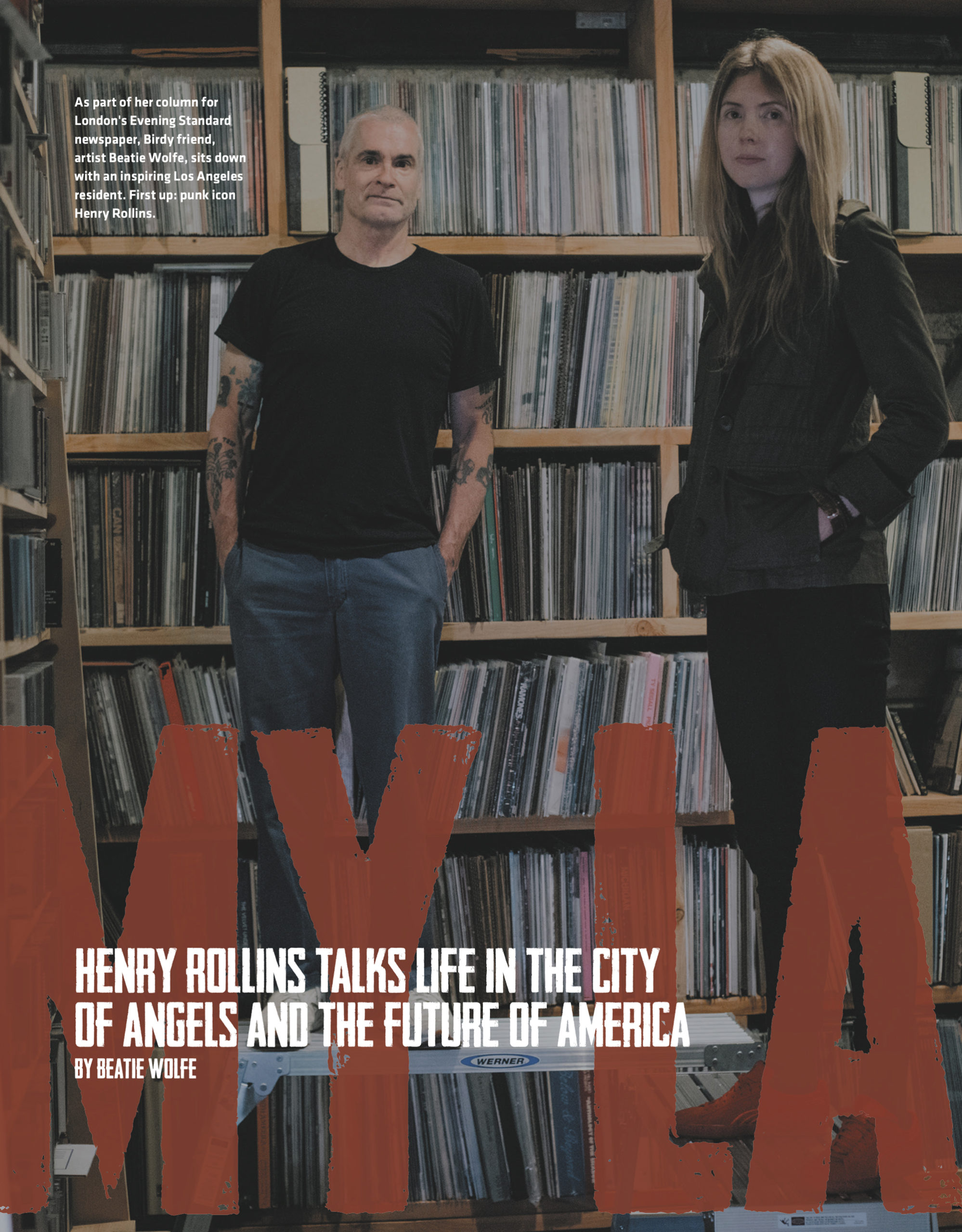
Published Issue 083, November 2020
Henry Rollins is one of the most enduring and distinctive voices of American alternative culture. Since securing his status as a punk rock icon — first as the frontman of the seminal Los Angeles group Black Flag and later with his own Rollins Band — Henry hasn’t stopped.
As a modern Renaissance artist, Henry has won a Grammy for his spoken word memoir, Get in the Van, while also being celebrated as a bestselling author, actor, presenter and publisher.
Artist Beatie Wolfe sat down with Henry, an LA resident since 1981, to talk about the best (and weirdest) things about life in LA.
Tell me about moving here. How and why did that happen?
I was born and raised in Washington, D.C. and in 1981 I auditioned to sing in a band called Black Flag. I didn’t know the lyrics of the song so I howled and moaned for 90 minutes and they said, “Okay, you got the job.” Within 10 days the tour ended in LA, and very quickly my world was extremely different. I went from scooping ice cream to being in a national, soon-to- be international, touring band with a notorious reputation. I went from gleaming, white underwear, and absurdly middle-class to hanging out with people who were prostitutes, junkies, hustlers, muggers, dealers, and all pals of mine.
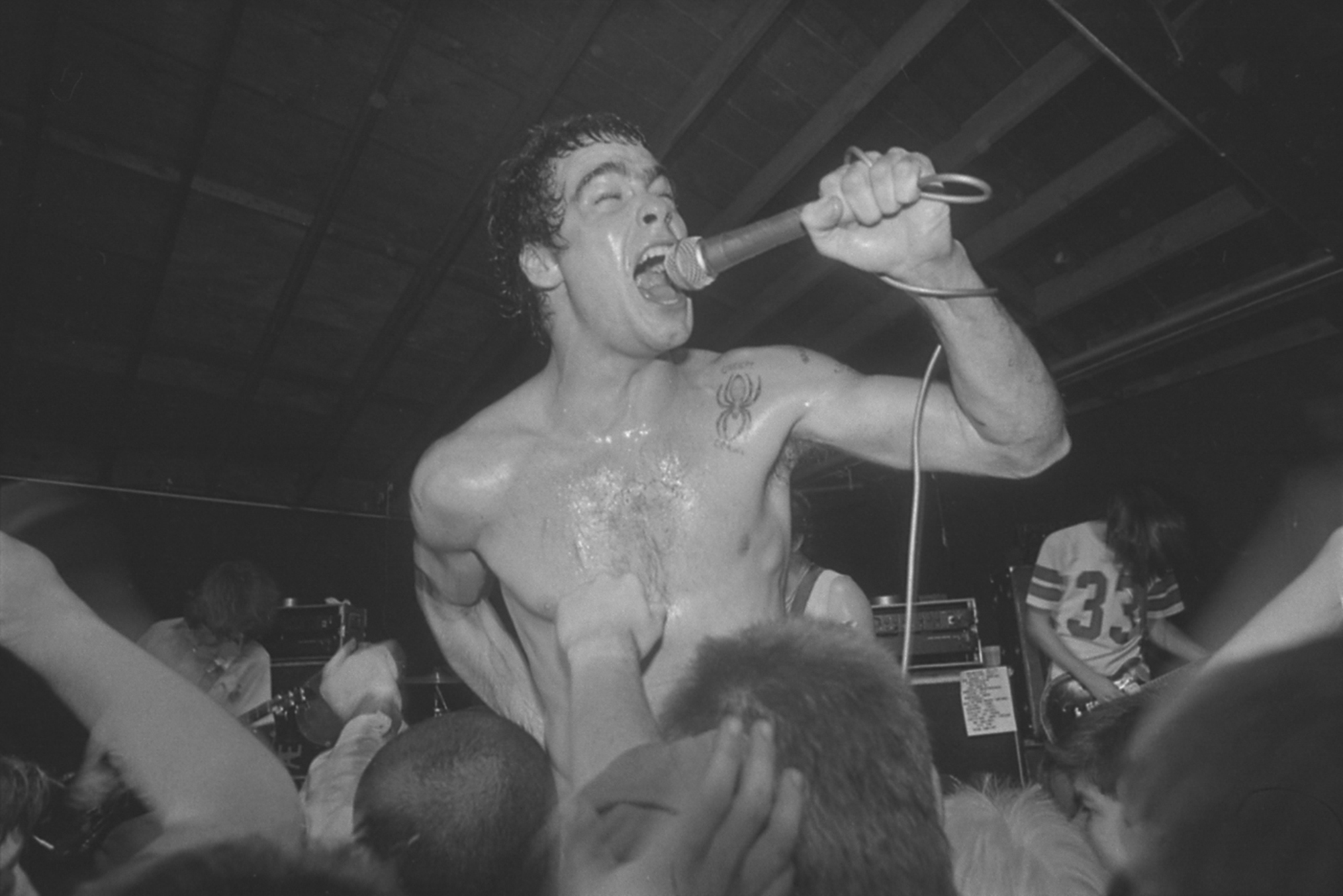
How soon after arriving here were you aware that you were going to stay?
I had nothing else going in my life. I came out here to be the singer in my favorite band and figured I’ll be here until tomorrow and I just kept saying that because with Black Flag, you never knew when it was going to be over. It was often this frenetic and feral existence where people around you died: suicide, overdose, bad luck, used very dangerous drugs, or made their money in less than legal ways. When the band broke up in ‘86, I didn’t think of going back to D.C. as that would seem like retreating ground. I left D.C. with a du e bag and $120. That was 39 years ago and here I am.
Early landmark memories?
There used to be a punk rock hangout called Oki’s-Dog, a cheap burger place where if you were punk, the cooks took pity on you and gave you extra fries because you were starving. I’d walk to that Oki’s-Dog, from the office we lived in, and eat food off people’s plates or the shining daughter of a Valley gynecologist would recognize me and want to hang out with the Black Flag guy. So you’d either eat congealed food or someone would take pity on you and you’d get a warm meal. I now live in this big stupid house seven minutes from where I first landed. So it’s been a journey. I’ve come a long way and yet I can easily be reminded of being 20 years old.
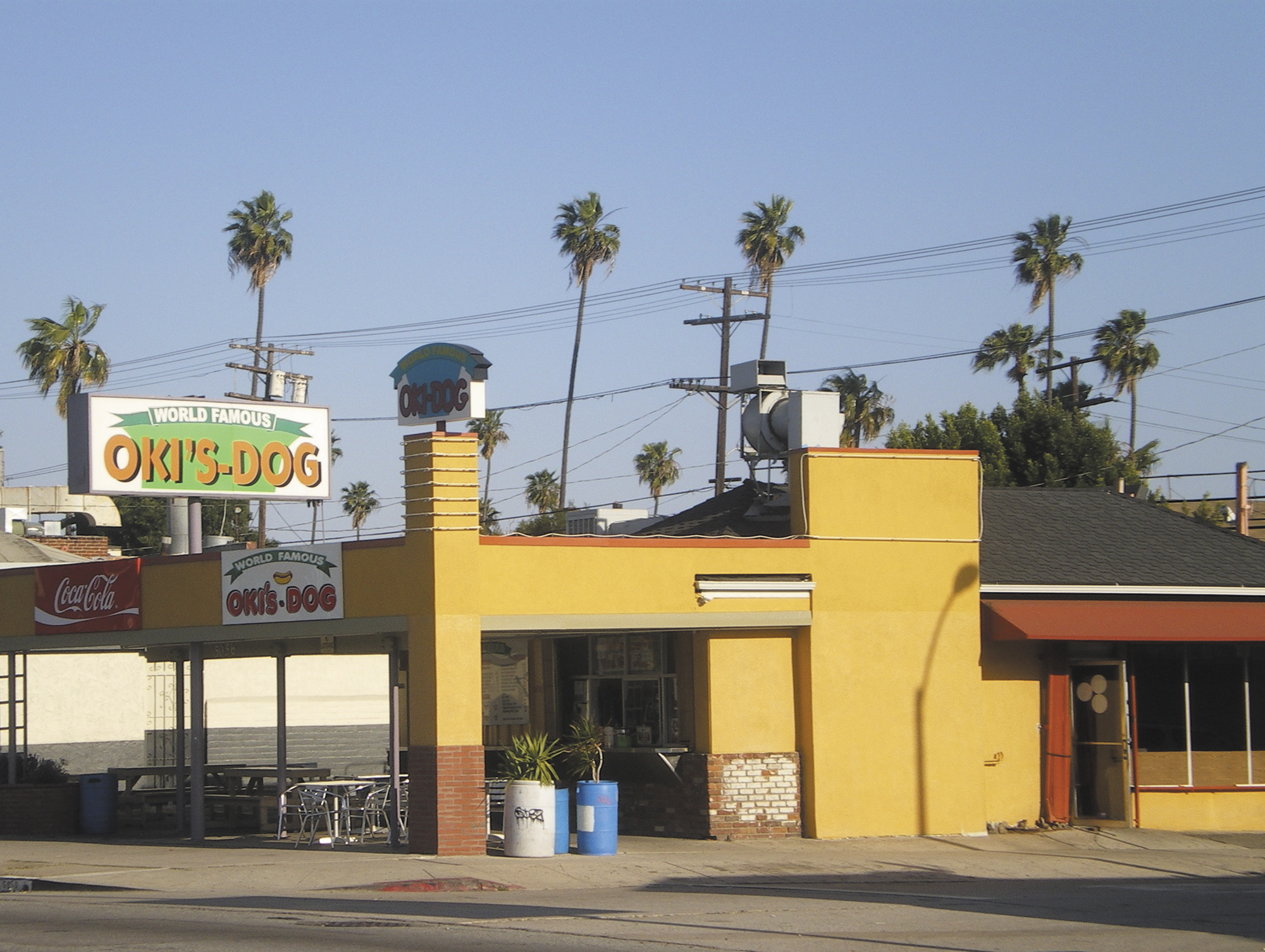
What do you love most about LA?
When I first got here, I was living in what is now West LA. You can’t buy a blade of grass in that neighborhood now but back then it was rent boys at the 7/11, drugs being sold in the open, not necessarily dangerous, but really raw like a Tom Waits song. And I’d walk by the Tropicana and see some British band that played the Roxy the night before or the singer from the Plasmatics on the payphone or Iggy in some crazy scene by the pool. You’d see all these larger than life people on your way to eating cold French fries. So LA is its own reality and such a trippy place to live.
How has it changed?
There used to be enough of an Annie Hall cliche to where you’d become very cynical about LA and if someone said: “We’re a band from LA” you’d think: “I so don’t want to hear you. If you’re from here I can’t take you seriously.” Or “I’m an LA poet.” “Thank you for letting me know so I can get out of here because I don’t want to hear a word that comes out of your mouth.” Of course, there were a ton of great bands and poets, but there was also this fakeness to it. What I’m not clear on is whether I changed and became more open or whether LA changed.
What made you change your mind about the city?
When I realized that LA is an analogue city. I started writing for LA Weekly and people would say, “Hey, I liked the article last week,” or I’d be standing in line at the grocery store and someone would say: “Hey man. Your radio show last week saved my life.” Having a radio show that people responded to made me want to get behind the LA scene and stick up for it. When I was younger, I’d say: “Torch it. You’ll do the world and culture a favor to eliminate the vacuum.” And now I cannot support that. And I think if I lived in Arkansas, I’d miss the woman meditating in line at Gelson’s.
What about the gig scene?
When I got out here the gigs were scary. You could get beaten up by a member of the audience or security. Now when you go to gigs what used to be slugfests are gay kids, hipster kids, everyone’s hanging out and it’s cool. There’s not a whiff of violence. I expect more to see a herd of zebras at a gig than a fight.
Is there something you’ve done here that you couldn’t have done anywhere else?
Yes, LA allowed me to be. If I’d stayed in D.C., it would have been one minimum wage job to the next and a really dull existence. But I came out here and 40 years on I don’t know how many TV shows or movies I’ve been in, from small ones to big ones like Sons of Anarchy, a film with Al Pacino, I’ve met so many of my heroes, won a Grammy, sold hundreds of thousands of books. Me. How did any of this happen to me? So being out here allowed me to realize that stuff was in me that I didn’t know.
Someone who made this city home?
I went to KCRW in 1983 to be interviewed by this woman named Deirdre O’Donoghue and we ended up talking about music until 1 a.m. We became friends and between tours, I’d couch surf at Deirdre’s and watch her make a radio show and one day she said, “Okay, you’re up next!” And a hundred years later, I’m in the exact same room where Deirdre taught me with my own show at KCRW. Deirdre turned me onto a whole world beyond the 20 records that I owned. She was like my mentor and I’m still trying to do what Deirdre taught me.
Favourite record store?
Amoeba was my go-to for many years because it’s run by very smart people. When I’m at a record store it’s a very intense experience for me. I have a want list. It’s alphabetized. I have the entire thing choreographed. I’m a man on a mission.
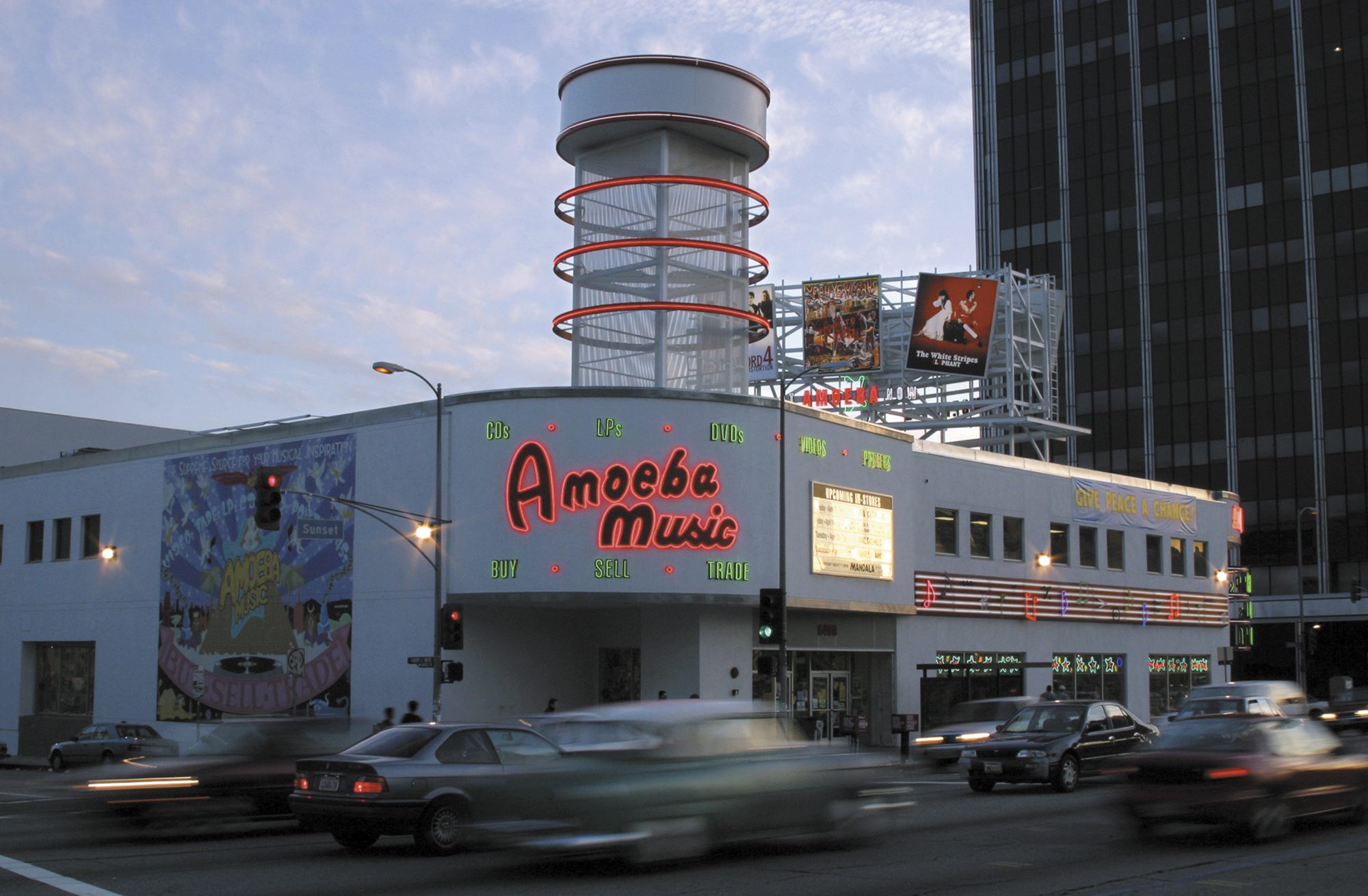
Something people might not know about you?
I’m intensely solitary. I’ll work in a movie with you. I’ll shoot on location for six months with you, shoulder to shoulder, every day. And then I’ll breakout in hives when you ask me to go to the wrap party. Because I don’t understand human relationships, beyond the working one, all that well. So I’m a very solitary person or I will pay double to be alone.
Where do you go or what do you do to get inspired?
Being a solitary type, I kind of live in my head. I don’t have a TV, so I have a lot of books, music and art at the house. I’m also an achievement junkie so I’m always trying to come up with something to do because I get super depressed otherwise. I’ve had a real thing with depression since I was about five and it’s like living in a swimming pool full of chewing gum where I just can’t get things going. So I work on that with a good diet, a frenetic fitness regime, and trying to put something up on the board everyday.
Favourite venues?
I love the legendary music history of LA because everyone has played here. You go to some of the older venues like Whiskey and you realize that The Stooges, Diana Ross & The Supremes, Dylan, everybody’s been on that stage. Same with The Troubadour. So I like going to those venues that had a young Tom Waits, Tom Petty or Bonnie Raitt when she was just a gal with an acoustic. Every one of those buildings has incredible stories. The newer ones I like because they look and sound good. The Teragram Ballroom has great sightliness and everyone sounds great. Zebulon has a lot of African and avant-garde shows (those are the bands from my wheelhouse).
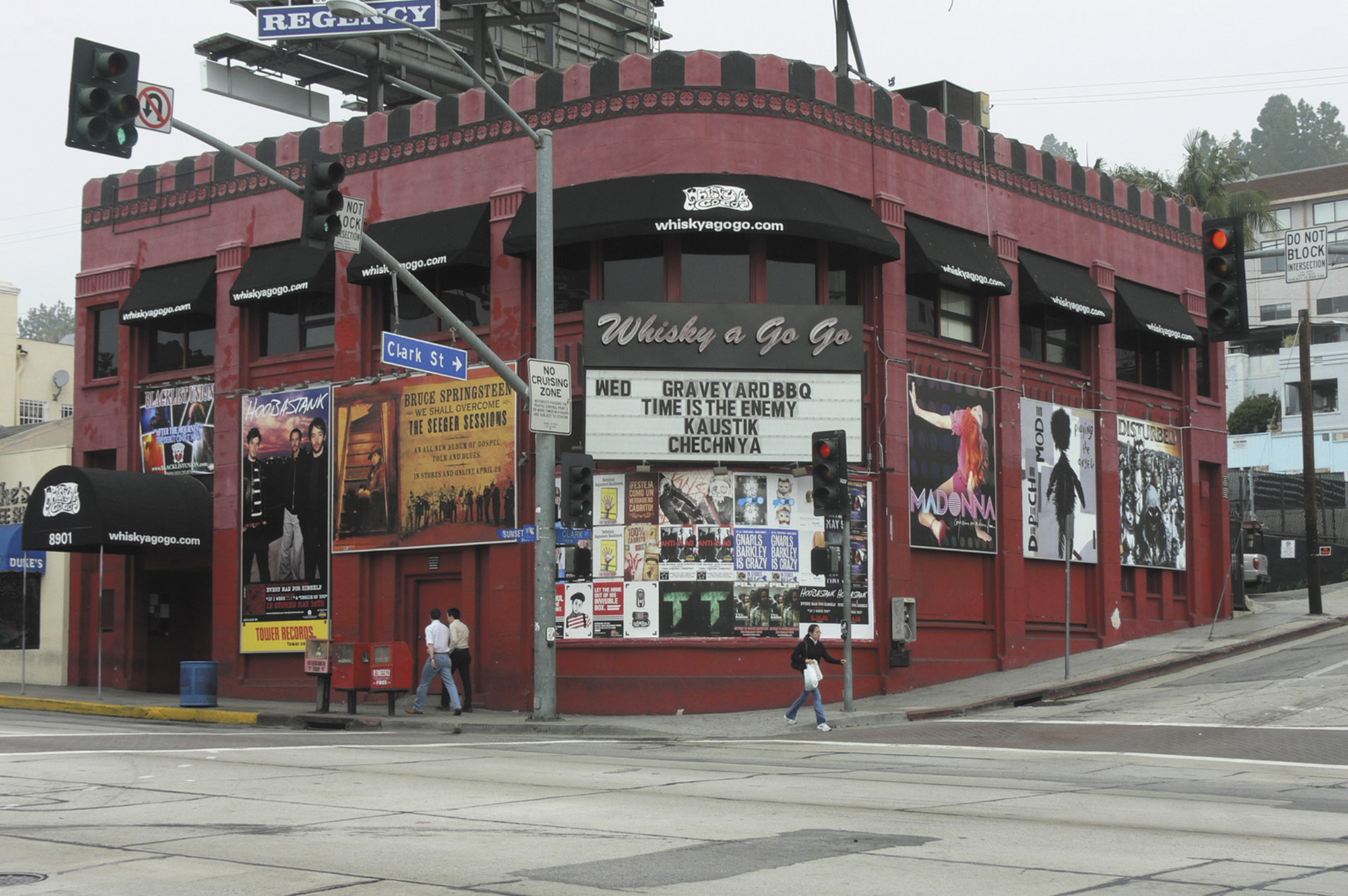
Something that only happens in this city?
That LA thing and you can’t get anything remotely like it anywhere else. And what is it? Well come here and walk around and it’ll hit you. Because only LA happens in LA. It’s like the steam coming o your tea, I don’t know how else to say it.
Tell me about “love” in LA?
You hear the word love a lot, like “We love you at Disney!” “Well, do I get the part?” “No, but we love you. We validate your parking because you are out of here so we love you.” I’m incredibly tightly wound. I don’t do love. It’s a very serious matter for me. And there’s a lot of love here and I don’t necessarily believe it. When someone says, “I love you, man!” I reply: “Okay. Thank you,” like some federal agent trying to unfreeze my clamped jaw because I don’t know how to handle that incoming information. And there’s also this feeling that a smile can be covering up something really scary.
What do you think it’s covering up?
Everyone thinks that LA is so laid back but there’s an undercurrent here that’s super dangerous. Some of the scariest people I ever met, I met living in LA. So I see a dichotomy that only happens here. It’s so smiley, so huggy and yet there’s this undercurrent and so many inappropriate relationships. Like, what’s that 75-year-old guy doing with a 19-year-old? That’s LA. As Perry Farrell once said, “unashamed pigs in Zen.”
Biggest misconception about this city?
That everyone hangs around like the Big Lebowski and is wasted on pot, watching cartoons. You have to remind people that California is the seventh biggest economy in the world and we don’t need the rest of the United States. We could dig a trench, make our own flag and do just fine. So Californians aren’t like Spicoli, not even Sean Penn is like Spicoli. I work at a pretty frightening pace and the people I interact with are usually insanely intelligent. Like you’re an interesting, obviously brilliant person. So when someone says, “LA is full of a bunch of dope smokers.” I go, well, “There’s this woman named Beatie Wolfe who’s smarter than your entire bloodline. So you’d better reel that one in.” There are a lot of brilliant people here who are going to dictate the future.
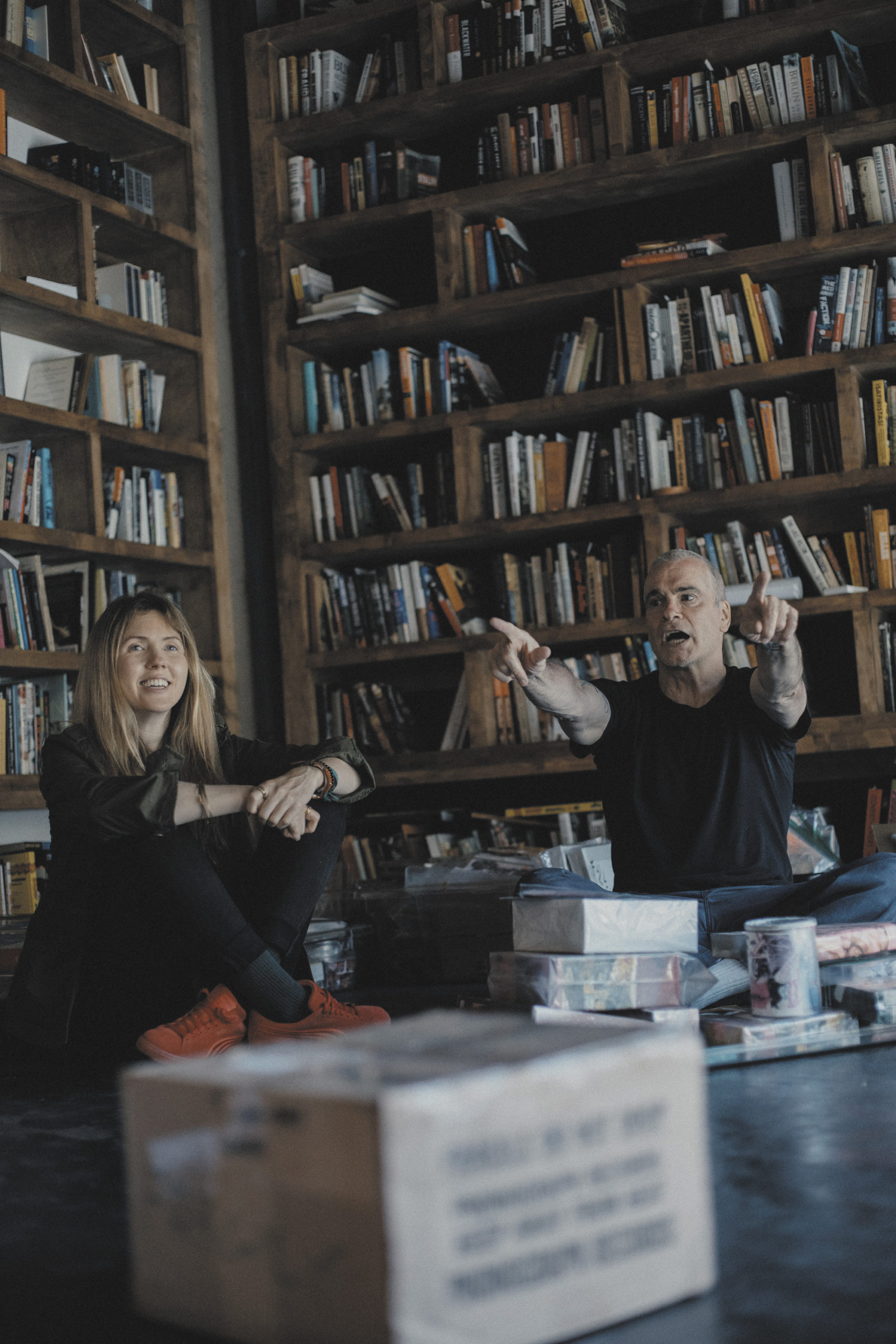
The future of LA?
LA is a total future city and it’ll always be five years ahead of the rest of America. So eventually there will be more of the LA multicultural/multiracial model, which you get in Manhattan and London, but I used to not get that in LA. I just got “danger” and now I get “come on in.” I was born and raised in a country that was built on the backs of slaves, which still has racism and a president who’s okay with it. So when I’ve seen it get better here I know it can happen anywhere else.
What’s underrated?
The quality of human interaction. There are a lot of good people here but someone who watches Fox News might think, “Oh, there are a lot of illegals in LA.” And I’m sorry that person will never have a chance to enjoy LA’s rich multiculturalist canvas and Hispanic culture. I didn’t have Hispanic culture in D.C. It was white, it was black, it was political. And one of the best things in my life was discovering this wonderful additive, from the music to the food to the people, and what it gives to LA, how it informs LA. To me, it’s a Hispanic city and I love it. And I use that word very carefully.
What’s overrated?
I don’t know. It gets hyped a lot, but you have some of the best food in the world, some of the smartest people, some of the best productions, so what’s overrated? I’m not saying it’s a city without fault. There shouldn’t be any homeless people but so many of the problems that I saw when I came out here have been addressed and people here get things done. The president’s out to lunch, but we’ll take care of it. He’s not going to tell you to wear a mask, but I’m going to beg you to wear a mask. Many wrongs in LA have been righted where the people just stood up and that’s with racism, homophobia, misogyny.
One word that you hear too much?
Love
One word you say too?
Fantastic
LA in three words?
My home town
If you were a juice, what kind of juice would you be and why?
I’d be olive oil, which is olive juice, basically. When they say it’s cold-pressed, I imagine a bunch of olives between two pieces of cloth being mercilessly smashed. And from that great pain and compression comes this ooze that is quite good. So I wouldn’t be a fruit juice. I’d be this heavy, viscous liquid that is the process of being smashed. I’m the product of violence, compression and being stifled. And I’ve got an amazing shelf life.
Tune in to Henry’s radio show online and see more of what he’s up to at henryrollins.com.
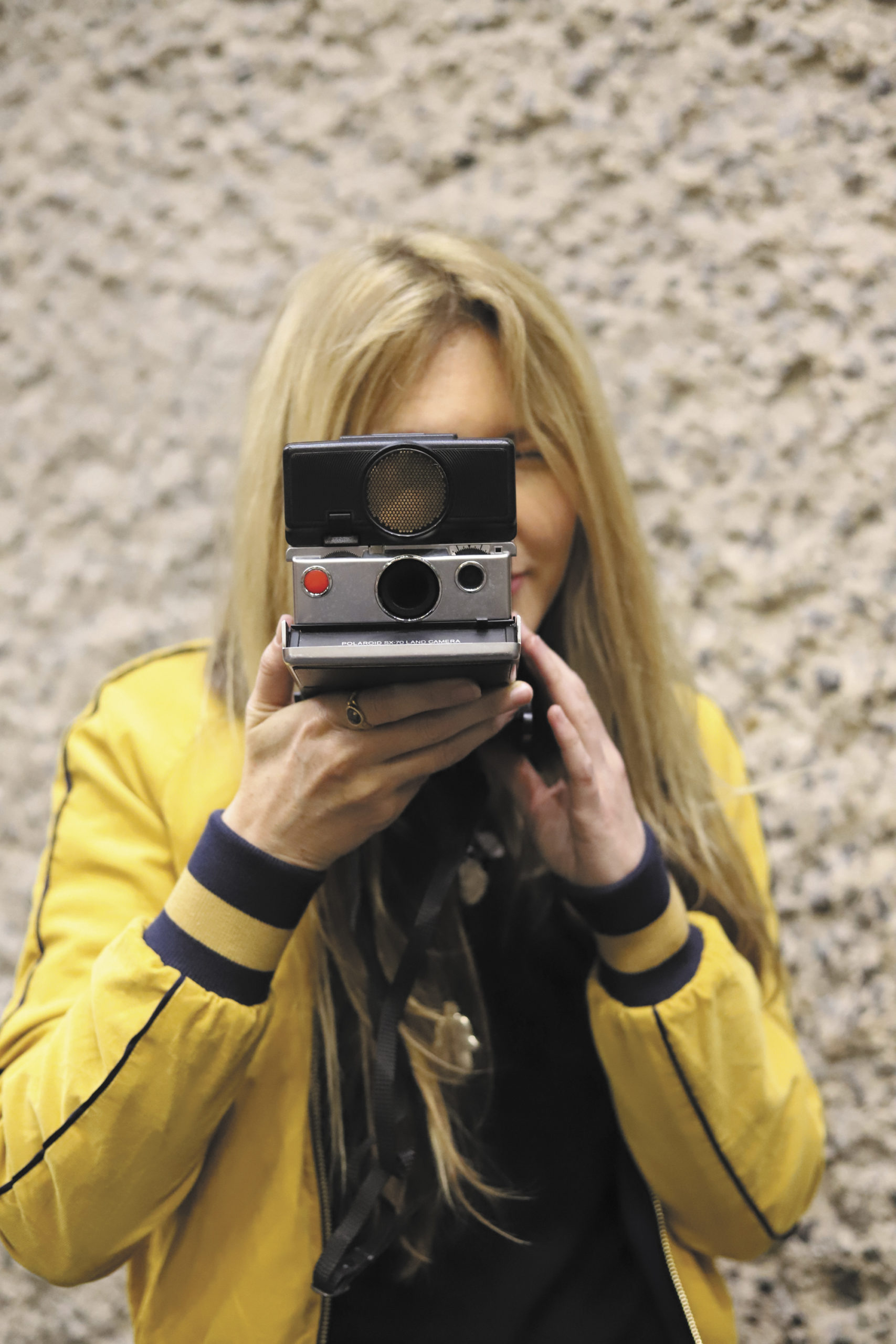
Beatie Wolfe is a London-born, LA-based artist and innovator who has beamed her music into space, been appointed as an UN Women role model for innovation and held a solo exhibition of her album designs at the V&A Museum. Beatie’s next musical innovation is an environmental protest piece, From Green to Red, which will be exhibited at the London Design Biennale in Somerset House.
